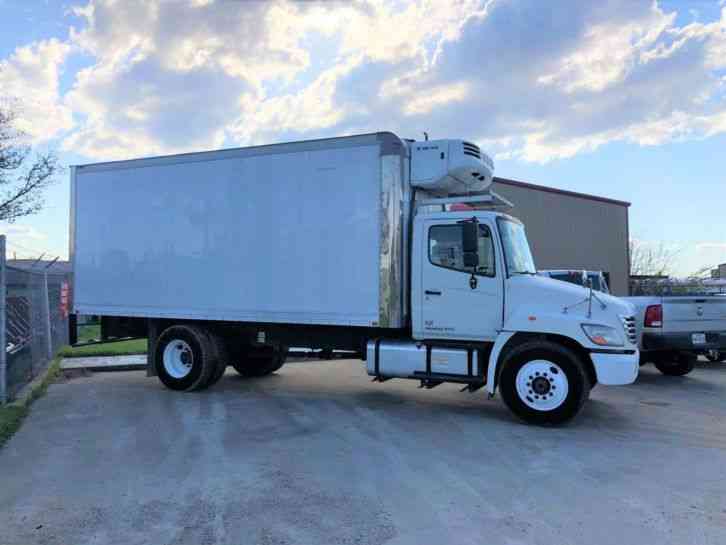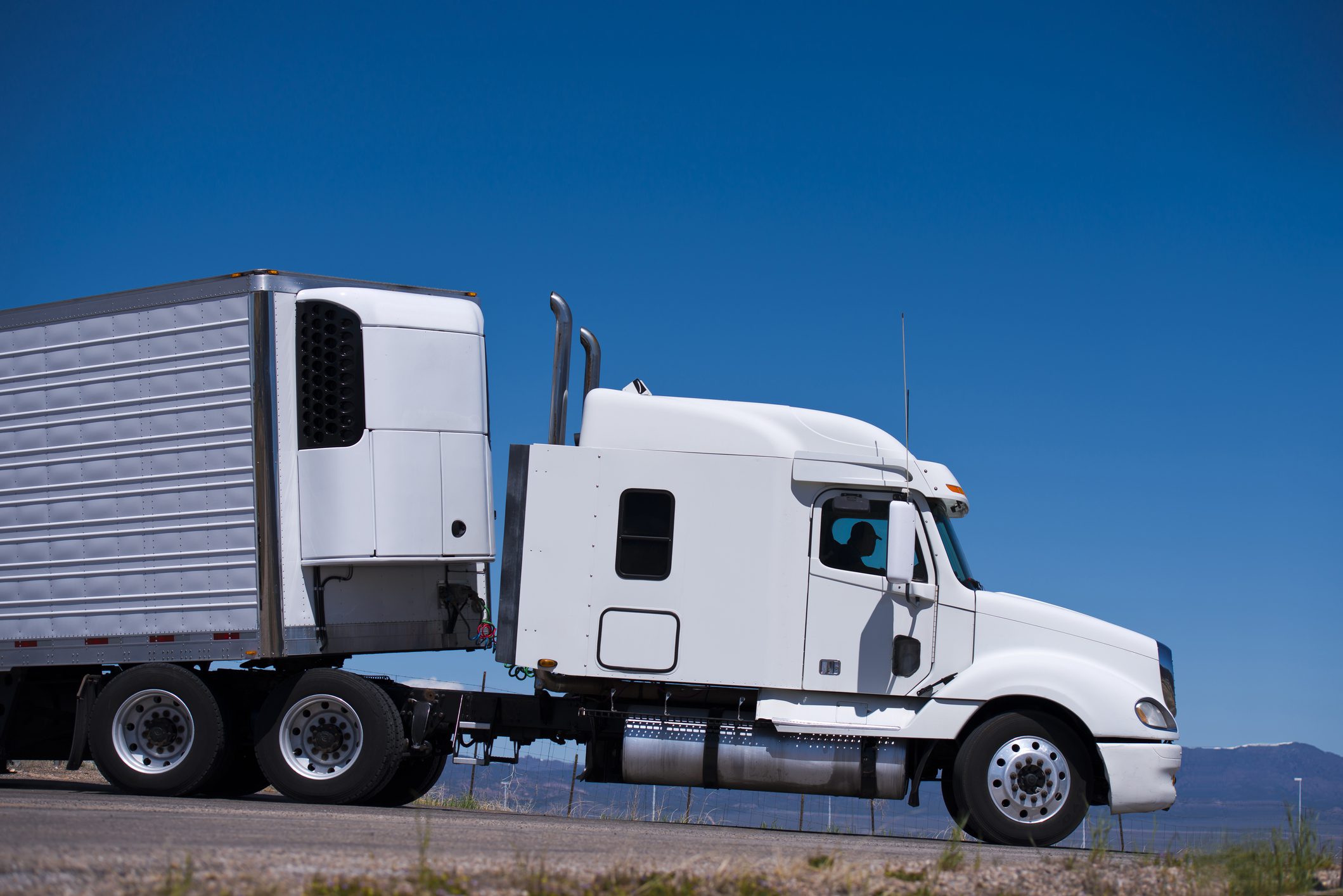Reefer Trucks Thermo King: Blazing A Trail in Cold Chain Technology
Reefer Trucks Thermo King: Blazing A Trail in Cold Chain Technology
Blog Article
Picking the Right Transportation Refrigeration System for Your Fleet
Choosing a proper transportation refrigeration system for your fleet is a crucial decision that can significantly impact functional performance and item honesty. It requires a detailed understanding of your particular refrigeration needs, including temperature demands and distribution schedules.
Understanding Your Refrigeration Needs
When picking a transport refrigeration system, recognizing your details refrigeration needs is vital to guaranteeing item quality and conformity with market requirements. Various elements must be taken into consideration to identify one of the most ideal system for your procedure. These include the sort of items being transported, their temperature needs, and the duration of transit.
For subject to spoiling goods, such as fresh produce or drugs, precise temperature level control is important. Comprehending the temperature level variety required for each and every item enables the option of a system that can preserve those problems continually. Furthermore, consider the frequency of shipments and the range traveled; longer trips might necessitate systems with improved insulation or back-up power alternatives to stop temperature changes.

In addition, the capacity of the refrigeration device must line up with your load dimension. By completely analyzing these aspects, you can ensure that your selected transportation refrigeration system efficiently fulfills your operational requirements and preserves product stability.
Types of Transportation Refrigeration Equipment
Selecting the right type of transportation refrigeration system is vital for making certain the secure transportation of temperature-sensitive products. There are a number of systems available, each designed to meet certain needs and applications.
These systems are often favored for their efficiency and lower initial costs. An additional choice is the central refrigeration system, which offers numerous compartments or automobiles from a single compressor unit.
In addition, there are self-supporting refrigeration devices that integrate the compressor and evaporator in one plan. When room is limited, these units are suitable for smaller sized cars or. For specialized applications, such as carrying pharmaceuticals or perishables, cryogenic refrigeration systems might be used, employing fluid nitrogen or co2 to preserve ultra-low temperature levels.
Finally, hybrid refrigeration systems that incorporate electrical and diesel power are ending up being increasingly preferred, using flexibility in energy use and minimizing environmental impact. Comprehending these numerous kinds enables fleet drivers to make informed choices customized to their specific operational demands.
Key Functions to Consider
Just how can one guarantee that a transport refrigeration system fulfills all functional requirements? To accomplish this, a number of key attributes need to be very carefully examined. Temperature level control is critical; systems must provide accurate temperature level settings to accommodate various items, varying from frozen goods to perishable items.
Power efficiency is one more essential consideration, as it impacts operational expenses. Seek systems that utilize advanced modern technology, such as variable speed compressors, to maximize power usage without compromising efficiency.
Another feature to assess is the dependability and durability of the equipment. Solutions built from high-grade products and made for resilience versus extreme problems will certainly decrease upkeep costs and downtime.
Additionally, the ease of maintenance and availability of components can significantly influence functional efficiency (refrigerated transportation thermo king). Features like modular designs or remote tracking capabilities can streamline solution procedures
Finally, compatibility with existing fleet administration software program can boost monitoring my response and reporting processes. By focusing on these essential features, fleet drivers can make certain that their transportation refrigeration systems not just meet current needs but also adapt to future needs.

Budgeting for Refrigeration Solutions
Evaluating crucial features of transport refrigeration systems is just one part of making certain operational performance; budgeting for refrigeration options is just as crucial. A well-structured budget plan not only encompasses the first purchase cost yet also considers lasting operational prices, consisting of energy usage, upkeep, and prospective repair work demands.
When establishing a budget plan, fleet supervisors should initially assess the total expense of possession (TCO) This consists of not only the purchase expenses yet also continuous expenditures associated with sustain effectiveness and the longevity of the refrigeration units. Selecting systems with greater power performance ratings might generate considerable cost savings gradually, mitigating in advance prices.
Furthermore, fleet drivers need to account for prospective scalability. As companies grow, the refrigeration requires might transform, requiring upgrades or extra units. Planning for these future expenditures can avoid financial pressure.
Financing alternatives can also play a crucial duty in budgeting. Leasing, fundings, or straight-out acquisitions each have unique monetary effects, and comprehending these can assist in making an educated decision. Inevitably, an extensive spending plan that considers both future and immediate demands ensures that transport refrigeration systems contribute positively to the overall operational efficiency of the fleet.
Maintenance and Support Alternatives
In the world of transport refrigeration systems, reliable maintenance and support choices are essential for guaranteeing optimal efficiency and long life. Normal maintenance is vital to avoid malfunctions and keep the stability of temperature-sensitive freight. It is a good idea to develop a routine evaluation routine with qualified technicians who can carry out essential checks and repair services on refrigeration devices.
Support options must consist of a durable solution arrangement, covering both routine upkeep and emergency repair work. This makes certain that your fleet has access to trigger help, reducing downtime and keeping operational performance. Several manufacturers offer extensive assistance packages that consist of training for your my link staff, allowing them to do fundamental troubleshooting and upkeep jobs.
Moreover, making use of remote surveillance modern technology can improve your maintenance strategy - reefer trucks thermo king. These systems provide real-time information on temperature level and performance, permitting proactive actions prior to issues rise. Purchasing training and innovation not just increases your fleet's reliability yet likewise expands the life-span of your refrigeration systems
Ultimately, a critical method to upkeep and assistance will guard your investment and make certain that your transport refrigeration systems operate at peak performance, delivering constant outcomes for your organization.

Conclusion
In verdict, picking the ideal transportation refrigeration system for a fleet demands a comprehensive assessment of particular refrigeration requirements, system types, and vital functions. Additionally, check my source careful budgeting and preparation for future scalability will certainly contribute to the long-lasting success of the refrigeration strategy.
Picking an appropriate transportation refrigeration system for your fleet is a crucial choice that can significantly affect operational efficiency and item stability.When picking a transportation refrigeration system, recognizing your certain refrigeration needs is extremely important to making sure item high quality and compliance with industry criteria. By extensively examining these factors, you can make certain that your chosen transportation refrigeration system efficiently fulfills your functional demands and maintains item honesty.
Ultimately, an extensive spending plan that takes into consideration both future and instant demands ensures that transport refrigeration systems contribute positively to the general operational effectiveness of the fleet.
In verdict, choosing the ideal transportation refrigeration system for a fleet demands a comprehensive examination of details refrigeration demands, system kinds, and crucial features.
Report this page